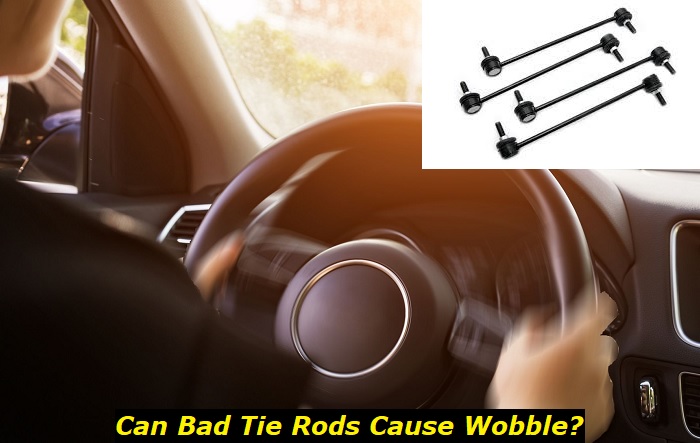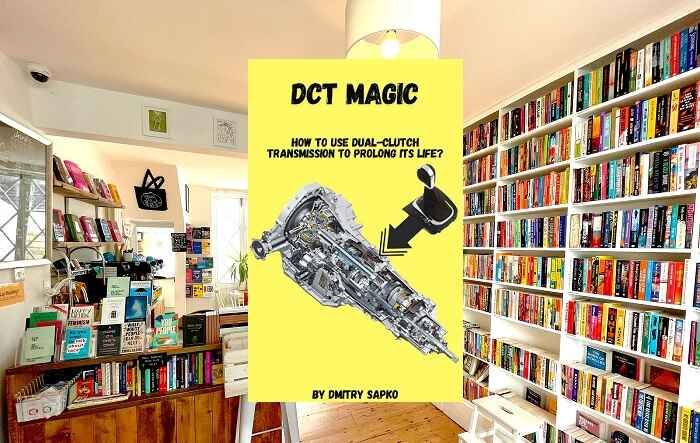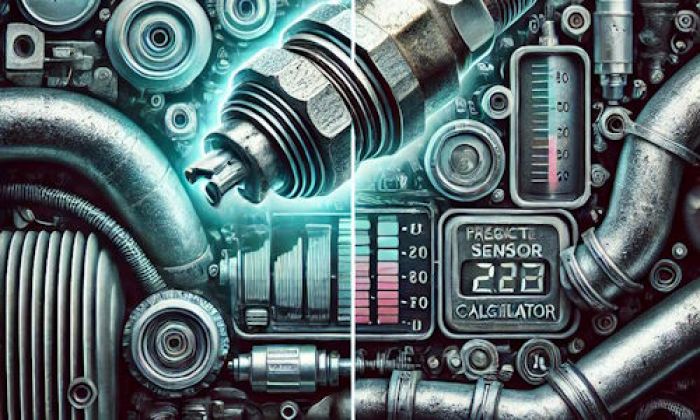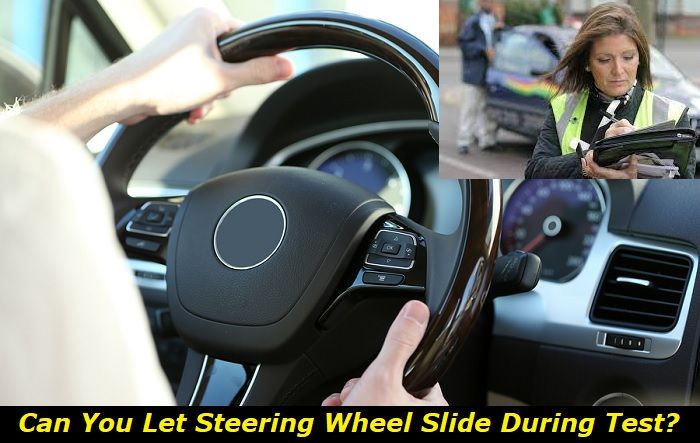"Is my car falling apart?" - This might be one of the first questions one might think of when experiencing a severe steering wheel wobble. If we're honest, we cannot really blame anyone who would think like this, since this feeling can be very unpleasant and you do really get the impression that your car is on its road to self-destruction.
Front suspension problems highlights
- Level of importance:high
- Common reasons:road potholes, speed bumps, age, mileage
- DIY inspection:possible but complicated
- DIY repair:usually,impossible
- Average price in shops:$250 - $800
- Average time:2 - 8 hours
- If ignored:fatal failure, no drive, expensive repairs

Can bad tie rods cause steering wheel wobble?
If you are unfamiliar with what the tie rods do, we're now going to give you a brief explanation. Basically, they are one of the main links between the steering wheel and the front wheels. Without them, turning the steering wheel inside the car would have no effect on the front wheels, so you probably understand how much they matter.
Going back to the question, the simple answer would be yes. You could also notice strange noises when going over imperfections in the road and you might also feel that the steering has a very unpleasant loose feel to it. The vibration might also become worse whenever you accelerate or brake.
What else can cause this wobble?
Even though bad tie rods can cause steering wheel wobble, we think that it is important for you to know that they are not the only components that can cause such issues. There are multiple factors related to your vehicle's suspension and steering that could cause all sorts of unpleasant noises and wobbles.
Here are some of them:
- Uneven tire pressures
When was the last time you checked the pressures in the tires? This is one of the first things we recommend you to check whenever you encounter problems such as steering wheel wobble or when the vehicle is pulling to a side when driving or under braking.
Tire pressures should normally be checked every two or three weeks at least, in order to ensure that they perform as they should and they don't wear unevenly. The recommended pressure for your vehicle should be found in the owner's manual or on a sticker on the door or on the inside of the gas cap.
- Bad tires
If the tire pressures are all even, then you might want to check the actual state of your tires. They can be flat-spotted if the vehicle has been sitting for a while, or they might simply have uneven wear on them. If they are a bit older, you might even want to think about replacing them anyway.
- Unbalanced tires
Every now and then, the wheels require balancing, in order to compensate for the wear. Whenever the tires are out of balance, you will almost certainly notice a vibration in the steering wheel. If you don't know what balancing is all about, don't worry, it's nothing too complicated. Every shop that deals with wheels and tires should have one of these balancing machines and they would be more than happy to help you.
- Bad alignment
You might be familiar with the term geometry, but if you're not, we're going to give you a very simple explanation for it. Basically, all of the adjustable suspension and steering components must be adjusted to specific values in order for them to perform how they should and to avoid any vibrations or the vehicle pulling to one side, or even unusual tire wear.
This is something that should be done every once in a while since constant exposure to all sorts of driving conditions will almost certainly mess with the alignment over the long run. Fortunately, most shops out there can perform an alignment for you and, usually, for a very good price.
- Warped brake rotors
The tolerance between the brake pads and brake rotors is so small that when the brake rotors aren't perfectly flat and even slightly warped, they will almost certainly cause a wheel wobble. When things aren't so bad, the wobble will be only noticeable when braking, but when the rotors are seriously warped, you might notice a strange wobble even when driving normally.
- Damaged suspension components
Vehicle suspensions can be quite complex, but even when they are rather simple, you might still notice issues with them. Components such as shock absorbers, bushings, and ball joints will wear out over time and many times they will cause strange clunks, noises, and steering wheel wobble.
Even if they are not directly related to the steering wheel, they are still components that help keep your vehicle on the road, which is why you might feel in the steering wheel that there's something wrong in this department.
- Bad wheel bearings
The wheel bearings are another common reason why your steering wheel might wobble when you are driving. If they wear out and have too much play in them, you will almost certainly feel it in the steering wheel. Also, while we're on the topic of wheel bearings, if you notice strange humming noises when driving, this might also be an indicator of a bad wheel bearing.
For example, if you are going through a left-hand bend and you notice that the humming noise is louder on the right side, this is an indicator that a wheel bearing on the right side is bad. The same applies if you go through a right-hand bend, but with the bearings on the left side.
- Damaged axles
Often overlooked, even by some mechanics out there, damaged axles can also cause the steering wheel to wobble. This is something that is usually felt through the steering wheel on vehicles that have axles on the front wheels, i.e. front-wheel drive and four-wheel drive vehicles.
They are usually damaged either because of hard driving, especially setting off with full throttle with the steering wheel turned to one side, or simply because the CV boot was damaged and water has made its way into the CV joint.
How to fix the problems?
Luckily, fixing such problems shouldn't be too difficult and expensive, since most of the things that can cause these issues are not extremely expensive. However, it is important to know that in some situations, you will need to replace components as a pair, such as shock absorbers, even if only one of them is actually damaged, in which case you should expect to pay a little bit more.
Apart from balancing tires and performing wheel alignments, all of the other operations can be done by more experienced DIY mechanics at home, with the right tools and a bit of patience. However, if you do not feel like working on your own car, we recommend you to take it to any of your local shops since they've most likely already encountered a lot of vehicles with problems such as yours and they should be able to fix the issue in no time.
How to avoid issues in the future?
Avoiding issues mainly consists in performing regular tire pressure checks and also having them balanced from time to time. We also recommend you check the wheel alignment every once in a while, in order to avoid uneven wear on the tires as well.
When it comes to the other components, the only things that we would recommend you to do would be to avoid driving your vehicle too hard and to avoid potholes and bad roads as much as you possibly can, since they are one of the main factors that cause suspension and steering components damage.
Also, we recommend you have any issue related to the suspension or steering checked as soon as you notice there's something wrong since leaving them unattended will only cause more damage and you might end up putting yourself in unpleasant situations in which you don't have good enough steering or the vehicle is extremely unstable, especially at higher speeds.
Can you drive like this?
Driving the vehicle if you have a steering wheel wobble really does depend on how bad the situation actually is. If the wobble isn't severe, we think it's OK to drive like this for a short period of time, at least until you find the time to fix the problem.
However, if the wobble is severe, we recommend you have the issue fixed as soon as possible, since driving a vehicle like this can become very dangerous.
Final thoughts
Yes, bad tie rods can indeed cause the steering wheel to wobble, but it's important to take into account the fact that your car has many other steering and suspension components that could also cause this, meaning that it's not always the tie rods which are causing the trouble.
About the authors
The CarAraC research team is composed of seasoned auto mechanics and automotive industry professionals, including individuals with advanced degrees and certifications in their field. Our team members boast prestigious credentials, reflecting their extensive knowledge and skills. These qualifications include: IMI: Institute of the Motor Industry, ASE-Certified Master Automobile Technicians; Coventry University, Graduate of MA in Automotive Journalism; Politecnico di Torino, Italy, MS Automotive Engineering; Ss. Cyril and Methodius University in Skopje, Mechanical University in Skopje; TOC Automotive College; DHA Suffa University, Department of Mechanical Engineering






Add comment